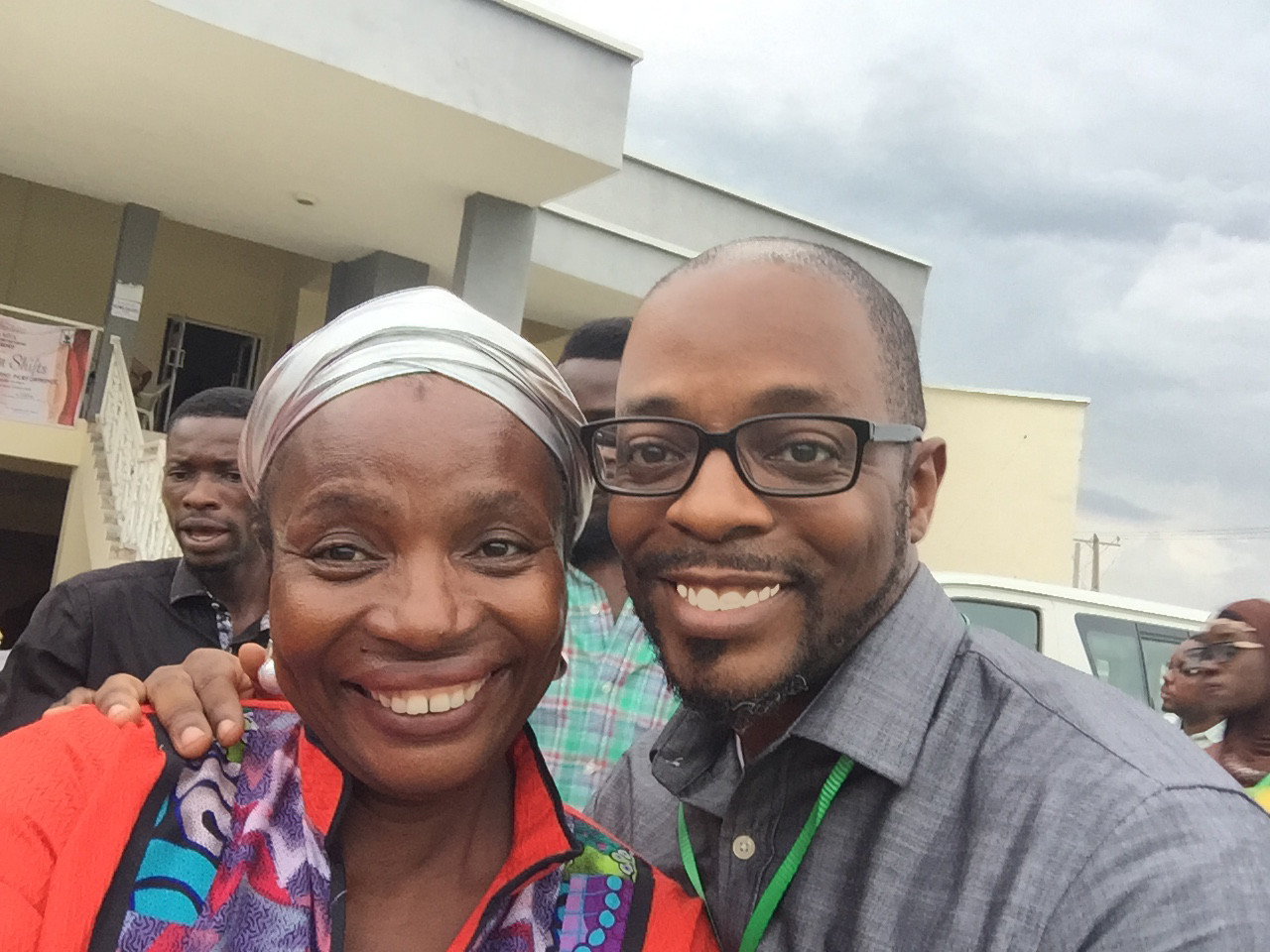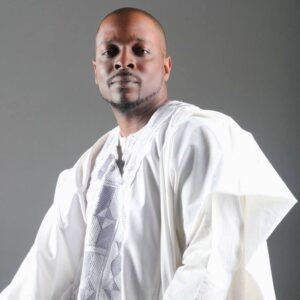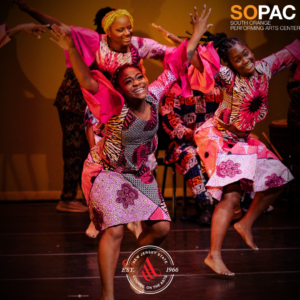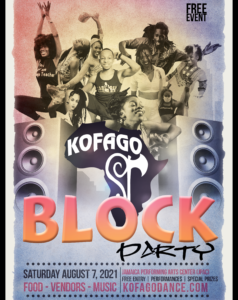Living through a pandemic is something generations before us didn’t have to deal with. The Corona Virus and is global reach is something we will all tell future generations about. I will be honest in saying that it’s been quit the struggle as a professor to teach dance classes via Zoom and similar platforms. The technology itself wasn’t the issue, but it was the lack of connection to my students that I truly miss.
As more and more people get vaccinated, there’s been a loosening of the COVID restrictions (some would say that they rushed that part of the process). The members of Kofago Dance and I have been hard at work to bring you the content and events you didn’t even know you needed!
Our GENERATIONS dance workshops have been a huge success! In addition to the GENERATIONS workshops, we’re excited to bring to you our first (and hopefully annual) KOFAGO BLOCK PARTY! Growing up in Brooklyn, block parties where great events that brought the block/neighborhood/community together. The Kofago Block Party will do the same thing. We will celebrate life, community, culture and dance in a way that represents who we are as a company.
The event takes place on Saturday, August 7th from 2-8pm and we have a whole host of activities and entertainment waiting for you to come and check out:
- Akoko Nante Drum Ensemble
- Batingua Arts Youth Ensemble
- Royal Majesty Dance Company
- Escape Room by Nadia Simmons
- Body Ra Movement
- CarNYval Dancers
- Yoga with Keziah
- Plus three amazing DJs (DJ C-Live, DJ Matt, DJ Turn Up)
We’ve got some activities lined up for the kids as well (face painting, arts 7 crafts). All of these events and activities are with the sole intention of bringing our community back together after being separated for so long. It’s no coincidence that this event will take place at the Jamaica Performing Arts Center (JPAC), which is the same location of our last live Kwanzaa Celebration performance in 2019.
Make sure you click the links above to follow the artists who will perform at the block party. For people who are interested in vending, please click the link here to register.
August 1st, 2016
For my last international adventure for the year of 2016, I had the opportunity to travel to the country of Nigeria. I was very excited because this was my very first trip to Nigeria, raising my tally of the African nations I have visited to three; Uganda, Senegal, and now Nigeria.
I was asked to present my paper, “Promoting Social Change Through Traditional West African Dance”at the African Theater Association’s (AfTA) 2016 conference, located at the University of Abuja in Abuja, Nigeria. The topic of this conference was “Paradigm Shifts in African Theater and Performance,” which brought together scholars and professors from across the world. As the only American at the conference, I felt that it was imperative for me to represent myself, my institution and my culture extremely well.
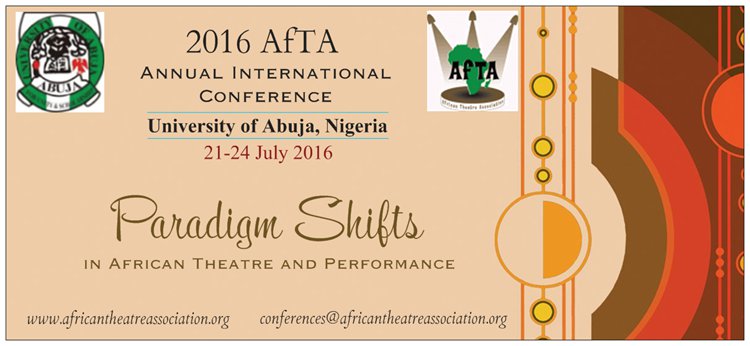
My perspective on culture as an African American is in alignment with the teachings of legendary scholars Dr. Cheick Anta Diop, Dr. John Henrik Clarke, and Dr. Sherrill Berryman Johnson. This means that my place in the larger global society is seated firmly as a member of the African Diaspora. The African Diaspora is defined as “the communities throughout the world that have resulted by descent from the movement in historic times of peoples from Africa, to the Americas, Europe, the Middle East, Asia, and other areas around the globe.” Showing my research to so many different scholars of the African Diaspora was truly an exciting and humbling experience. My time in Barbados at the Season of Dance conference two months prior gave me a solid foundation in what to expect at the AfTA conference. Here were some quick points from my notes:
- Out of the 137 abstracts, 50 were selected to present at the conference.
- Paradigm shift(s) is/are not new. It is the ideals of the African Diaspora that must be considered when discussing the shifts in African theater and performance.
- Theater is not just about acting. It’s also about singing, drumming AND dancing.
- African traditional dance is connected to African traditional values. African traditional values are connected to the traditional sense/notion of morality.
- The phenomenon of Donald Trump (Yes! He was very much a topic of discussion!) speaks to the fact that homogenization does not have those who consider themselves white people at its core, which essentially prohibits them from profiting from the oppression of others.
One of the most powerful presentations came from Dr. Rasheedah Liman from the Ahmadu Bello University in Zaria, Nigeria. Her topic “Reinventing Communities in the Rain: Community Theater in the Service of Internally Displaced People in Northern Nigeria” was an amazing lecture on the million+ people who are now living in displacement camps due to the ravaging effects of the Boko Haram attacks on the people of Northern Nigeria.
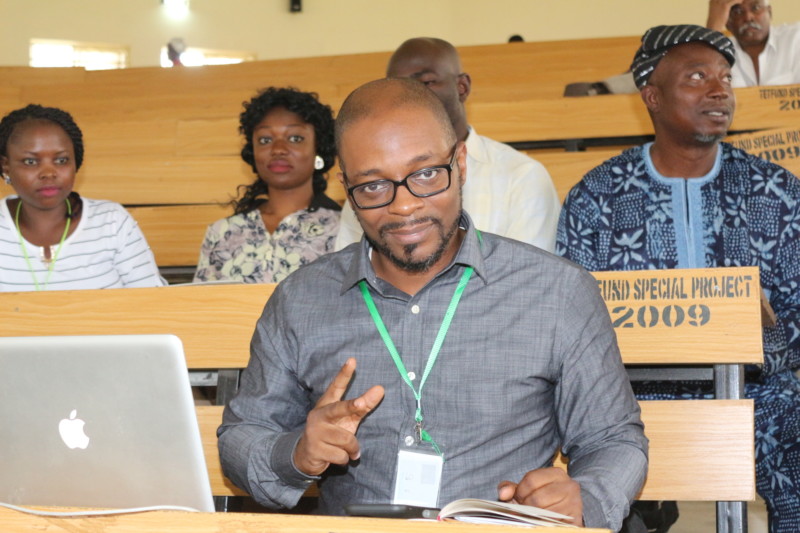
I presented on the last day of the conference, which allowed me to sit and take note of other presenters mistakes and successes throughout the symposium. My paper discussed the creation of my 2015 choreography entitled “NAGNOU FECC – The Men Must Dance,” which was an artistic protest of the rampant police brutality against African Americans happening in the United States. At the end of my presentation, I got an array of thoughtful and insightful questions and statements regarding my research:
- How did I reconcile the healing process and the need to heal from the trauma of watching acts of violence play out, versus the need to promote social change?
- What can be done to document dance so that we don’t lose our information and our culture?
- How do we (Nigerians) identify trauma as a psychological issue?
- What educational scholars are a part of you work as an educator and a choreographer?
That last question had me thinking back to my Methods and Materials graduate class at NYU’s Steinhardt School of Education’s Dance Education program. We spent the entire semester developing vision statements on what type of dance educator we would be. My work as a dance educator is firmly grounded in the works of education theorists Paulo Friere, Maxine Greene and William Ayers. These scholars and writers are all integral to who I am as an educator, and their worked prepared me for my experience in Nigeria.
I truly wish I could have stayed in Nigeria for an extra week just to explore the area, but unfortunately, I had to get back to prepare for the Drum Beat Journey experience in Chicago. However, I knew this would not be my last time presenting at this conference.
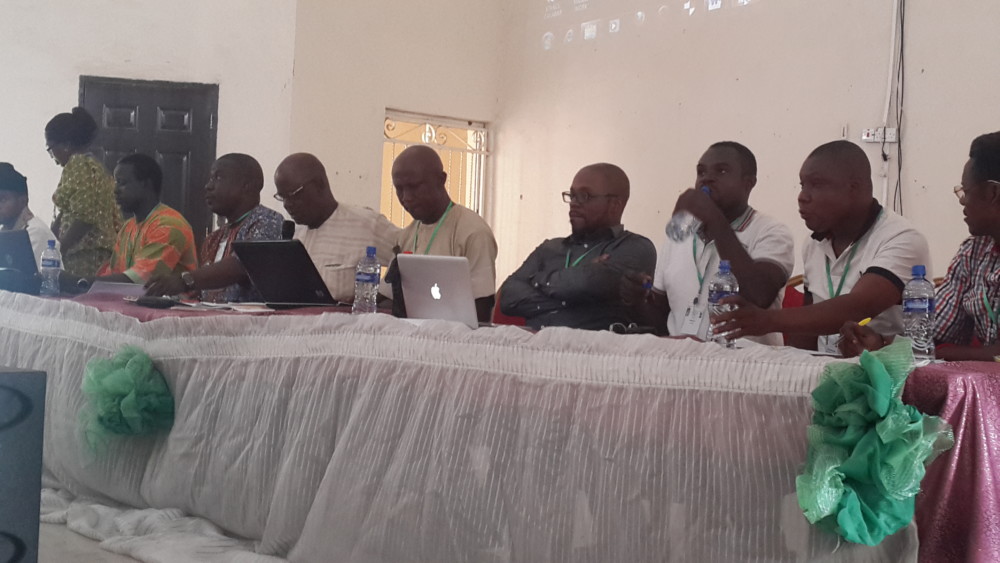
I would like to take this time out to say “thank you” to Professor Mabel Evwierhoma, the Conference Director, who helped me out in a pinch with my Nigerian Visa (that experience will be another topic for another day).
I’ll close this post with an excerpt from my paper:
“In implementing social change through traditional African dance, you have to do the ethnographic research, as well as have respect for the tradition and intention of the dance aesthetic. The paradigm shift occurs when the choreographer breaks away from creating with the intention to entertain, to creating with an intention to inform and educate. In this process, a choreographer’s role is to start the conversation, through their work. You never know who is in the audience and who will be inspired, motivated or moved to BE the change that your work will inspire.”
This conference, the participants, and the presentations have all inspired me to do better!
Stay tuned for what’s to come! #kevchronicles
